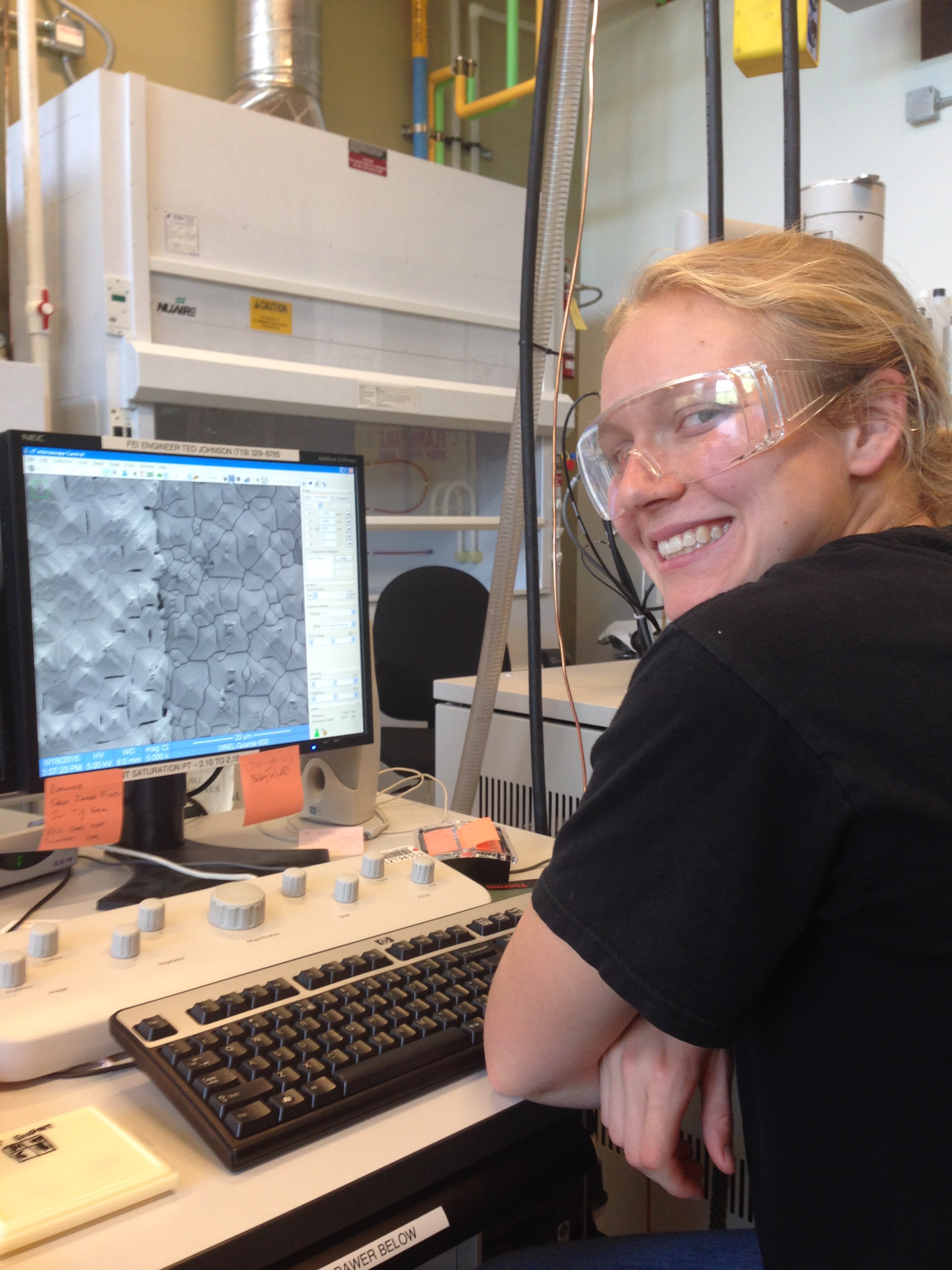Theresa Saenz
October 28, 2014
By Emma Alexander, Honors Communications Intern
Renewable energy is a very significant topic in today’s society and Purdue, the Honors College, in particular, is rather active in the research and implementation of renewable energy technology. Although renewable energy as a whole is important, our focus today is going to be one facet of this greater field, solar energy. To learn more, I sat down with one student who is majorly involved in solar energy technology, in more ways than you can imagine.

Her name is Theresa Saenz, and she is a junior in the Honors College from Michigan City, Indiana. She is majoring in materials engineering and minoring in electrical engineering and physics. Theresa is involved with Purdue Outing Club and Purdue Stamps Scholars. She was also an Honors College mentor. Currently, Theresa is the Team leader for the Solar Team through the Honors College as well as the President of the Students Growing Sustainable Communities club. On top of it all, Theresa is also very involved in research. She is currently a part of two research projects on campus and has also been involved in research for both the National Renewable Energy Lab and Colorado School of Mines.
Theresa told me she was always interested in renewable energy and made the decision to pursue a materials engineering degree with the goal of doing solar research. She wasted no time in doing so, as she began research after her freshman year. During that summer, she worked at the Colorado School of Mines in what she described as “more peripheral solar research.” It was through that experience that she got connected with the National Renewable Energy Lab (NREL), which is where she worked the following summer in the research of silicon solar cells. Theresa also researches for Purdue, though her projects don’t relate as directly to solar energy. In one project, she is learning computer modeling for materials, and her other project involves the making of very small ceramic particles. Although these projects don’t relate directly to her research at NREL, Theresa views them as skill-building experiences and says she has already benefitted from the application of these skills in her research outside of Purdue.
However, as was made evident by her laundry list of activities, Theresa is also very involved outside of research. Sticking with the theme of solar energy, I asked Theresa more about her experience as the leader of the solar team. “The solar team is a different side of solar energy than I am used to,” Theresa says. She explains, “The stuff I do in research, you’re going to see the application of that in maybe twenty years. With the solar project, we’ll be producing results in a couple of months.” You can read more about the solar team here. More specifically describing her own role in the project Theresa shared, “I lead a team of sixteen other honors students. It is really teaching me the project management side of things, which is always very valuable no matter where you end up.”
Looking beyond her time at Purdue, Theresa says she will definitely attend graduate school to pursue a Ph.D. in materials engineering before continuing her research with NREL.
Yet despite what already seems like a very impressive amount of participation in solar energy development, Theresa’s involvement in solar research is about to extend even beyond the borders of the United States, as she plans to study abroad at the University of New South Wales this spring. Although she will take school courses while abroad, Theresa will also have the opportunity to continue her solar research. Coincidentally, the University at which she will be studying is world renowned for its solar research and is the source of the best silicon solar cell ever made. In fact, it was her research team at NREL, which works with several other teams in Australia that connected Theresa with the lab she will be researching at while abroad.
Theresa’s passion for solar energy is obviously very deep rooted, and she has known she wanted to be involved with it since high school. When I asked her why, she told me,
I think the first time I really thought about what I wanted to do with my engineering degree was my junior year of high school. We went on a tour of an oil refinery. I knew that would be one common application of an engineering degree, but I thought to myself, I want to do something more sustainable. So then I started thinking about what else there was, and realized that solar sounded really exciting. And I now think that I am very lucky that I picked it because then I didn’t truly know how fascinating it would be to me. After the fact, I realized just how incredible and interesting it is, and I just fell in love with it.



